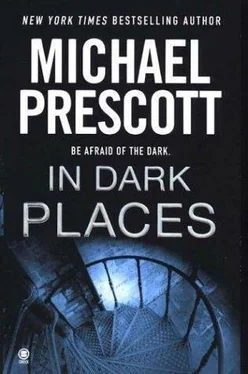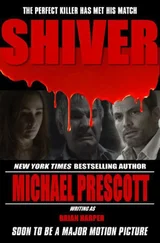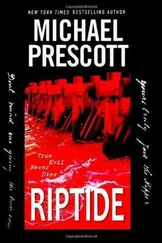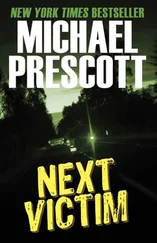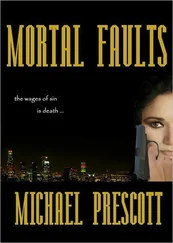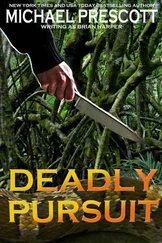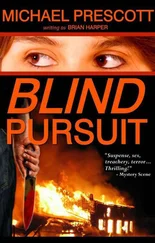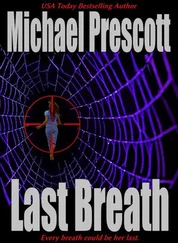Wolper wheeled the swivel chair close to Robin and stared intently into her face. "You really can't move, can you? Not a muscle."
To test the statement, he reached out with one hand and touched her face. She felt herself flinch internally, but her body registered no reaction. He dragged a fingernail lightly along her cheek.
"Amazing," he said, his voice low.
She willed herself to move. Lift an arm, twitch a finger, anything. It seemed like such a simple thing, the contraction of a muscle in response to a mental command, but now the communications line between her higher cerebral functions and her body had been broken, and there was nothing simple about it.
She wasn't tied down, wasn't encumbered in any way. She was free to get out of the chair whenever she wished, if only she could get her limbs to respond. She couldn't. She was paralyzed by the electromagnetic frequencies inhibiting her motor functions.
She had designed the MBI program to minimize the risk of seizure by suppressing motor response. Now she was trapped by her own technology.
He kicked the swivel chair backward and stood up. "I've got to admit, Doctor, it makes things very convenient for me."
She noticed he'd stopped calling her by her first name. He had, in fact, been strangely reluctant to do so from the beginning. Perhaps he needed to depersonalize her, distance himself from his victim.
He got out of the chair and surveyed the room, taking a letter opener from her desk.
Cut my throat, he's going to cut my throat amp;
But he made no move toward her. He looked up at the ceiling, then climbed onto the sofa underneath the smoke detector. With the letter opener, he began to pry the detector loose.
She knew, then. She knew exactly what he was going to do. She remembered his talk about throwdown guns, untraceable because the serial number had been eradicated. If he'd had a gun like that, he would have used it on her. He didn'tnot with him, anyway. If he cut her throat or strangled her, he would get blood on himself or leave hair and fiber evidence.
But fire amp;
Fire would erase all evidence. Fire would reduce the room to ashes. There would be nothing for the crime-scene technicians to find.
The smoke detector had come loose. With the letter opener he cut the wires, then extracted the battery.
She tried to figure out how it had happened. Wolper and Brand were in it together. That was clear now. Together they had done everything they could to stonewall her. Brand had refused to show up for his session. Wolper had tried to talk her out of pursuing the case. When that failed, he sent her to the worst neighborhood in town, obviously expecting that she wouldn't risk the trip.
Still, nothing Brand said had implicated Wolper. And Wolper didn't strike her as the type to take undue risks out of loyalty to a subordinate. If Brand had taken the payoff from Valdez and then shot him amp;
But maybe he hadn't.
Wolper went into the waiting room, where he discovered a second smoke detector near the bathroom.
Robin thought back to the session. Brand had been resisting the MBI process. She remembered his fear of going into a trancebeing hypnotized, as he called it. Of course he didn't want to be hypnotized when there were secrets he was afraid to reveal.
To overcome his resistance she had told him to report the scene in the parking garage as a spectator. He had reported witnessing a confrontation between a cop and Eddie Valdez. She had assumed the cop was Brand himself. What if it wasn't?
What if the cop had been Wolper?
In the waiting room, he slid an end table underneath the smoke detector and stood on it as he disabled the device. That detector was not wired into the AC, and all he had to do was remove the battery.
She replayed the session in her memory. Brand's voice, slow and thick, recounting the events.
"Eddie brings out the money. Thick wad, wrapped in wax paper, all taped up. Looks like a fat deli sandwich. Makes me hungry when I see it. I didn't have lunch that day"
Her own voice, interrupting.
"Not you. You're the observer, Alan. You're only watching. Tell me about the two men. Eddie and the cop."
And Brand going on: "The cop takes the money, puts it in his coat. It doesn't print too bad against the material. Nobody will notice it there."
Every time he'd injected himself into the story, she had made him pull back and focus as an observer. It had never occurred to her that he might have actually been an observer all along. Maybe he had been making the pickup with Wolperno, that made no sense; he had called in the report on his radio before entering the garage. He must have followed Valdez inside and stumbled on the transaction, watched from the shadows as it went down.
When Wolper realized he had a witness, he swore Brand to silence. More than that, he made Brand take the fall for the shooting, since Brand had already radioed that he was in pursuit of Valdez. Wolper, or perhaps others involved in the conspiracy, had finessed the shooting review so Brand was assured a positive outcome. Whatever discrepancies there were between the bullet that had killed Valdez and the gun Brand carried would have disappeared.
Finished with the smoke detector, Wolper went into the kitchenette. She couldn't see him without turning her head, and her head wouldn't turn, of course. But even over the clicking of the magnetic coils, she could hear drawers and cupboards being opened as he looked for flammable materials.
The conspiracy had all been covered upuntil Brand started talking under the influence of MBI. Although he hadn't implicated Wolper, he had opened up the incident for a new investigation. Wolper had to take care of things before they went any further. She had told no one but him about her findings. He stalled her for a day with a bogus claim that he was going to review the case file on the Valdez shooting. Then he came after her.
At dinner she'd told him she was treating an inmate. She'd even said when her session with the convict was held. While the session was under way, Wolper must have entered the waiting room, made small talk with the deputyand killed him with a knife or other sharp instrument when the man's back was turned. He came into this room, concealed by darkness, unheard because both she and Gray were wearing headsets. He would have killed her the same way he'd killed the deputy, then found a way to make Gray look responsible. Maybe he was planning to shoot Gray and then claim he had arrived early for his four-o'clock appointment. He would have been a herothe off-duty cop who stopped a serial killer's rampage.
But Gray spoiled his plans. He had the screwdriver. He used it to free himself from the straps. And when Wolper attacked her, Gray took him by surprise.
Gray really had saved her life. The blood on the screwdriver was Wolper's, not the deputy's.
Wolper had fled. He would have had to bandage his cut, dispose of any soiled clothes and other evidence. Then he returned to her office, feigning shock and sympathy. He had to return. He had to know how much she remembered.
He had taken a terrible chance. Suppose, when she saw him, her memory of the attack had instantly returned. He would have been finished. No more cards to play.
Except that wasn't true, was it? He'd had another card. The highest card of all.
He'd had Meg.
That was why she'd been taken. She was Wolper's insurance. His guarantee that whatever Robin remembered, she wouldn't dare talk. At the first hint that her memory was coming back, he would have quietly informed her that if she breathed a word, her daughter would die.
He had pretended to be concerned about her. He'd stuck close to her, handling her interview himself, chauffeuring her to Hollywood. He had needed to stay close so he could be sure she didn't start to figure out what was really going on.
Читать дальше
